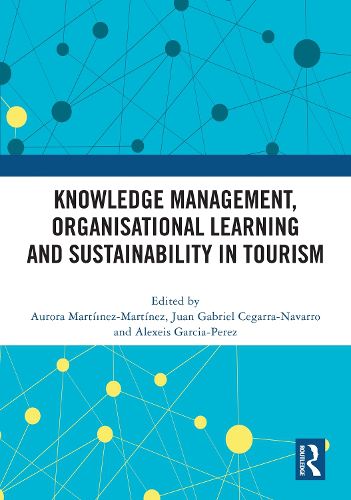Readings Newsletter
Become a Readings Member to make your shopping experience even easier.
Sign in or sign up for free!
You’re not far away from qualifying for FREE standard shipping within Australia
You’ve qualified for FREE standard shipping within Australia
The cart is loading…






This book explores the link between environmental knowledge management and the sustainability challenges being faced by organisations, individuals and society. Comprising both theoretical and empirical chapters, the volume describes how knowledge management and organisational learning can help achieve a sustainable tourism sector.
Environmental knowledge has become one of the most important resources for organisations in the current competitive environment. Organisations need to turn their knowledge into agile structures to respond to the challenges resulting from current and future environmental challenges, and from increased competitiveness and social changes. It is therefore important for business decision-making processes to be based on environmental knowledge instead of relying on unconfirmed, often biased information. In this vein, reliable knowledge structures and a framework become an imperative for sustainable development. Development of these innovations shall be addressed through systematic mechanisms such as integration of sustainability and environmental issues, attention to technological innovation, improved absorptive capacity, targeting social challenges as well as investment in human resource development.
The book will be of great value to students and researchers of social sciences with a focus on tourism, human geography, marketing, knowledge management and environmental studies. The chapters in this book were originally published as a special issue of Journal of Sustainable Tourism.
$9.00 standard shipping within Australia
FREE standard shipping within Australia for orders over $100.00
Express & International shipping calculated at checkout
This book explores the link between environmental knowledge management and the sustainability challenges being faced by organisations, individuals and society. Comprising both theoretical and empirical chapters, the volume describes how knowledge management and organisational learning can help achieve a sustainable tourism sector.
Environmental knowledge has become one of the most important resources for organisations in the current competitive environment. Organisations need to turn their knowledge into agile structures to respond to the challenges resulting from current and future environmental challenges, and from increased competitiveness and social changes. It is therefore important for business decision-making processes to be based on environmental knowledge instead of relying on unconfirmed, often biased information. In this vein, reliable knowledge structures and a framework become an imperative for sustainable development. Development of these innovations shall be addressed through systematic mechanisms such as integration of sustainability and environmental issues, attention to technological innovation, improved absorptive capacity, targeting social challenges as well as investment in human resource development.
The book will be of great value to students and researchers of social sciences with a focus on tourism, human geography, marketing, knowledge management and environmental studies. The chapters in this book were originally published as a special issue of Journal of Sustainable Tourism.